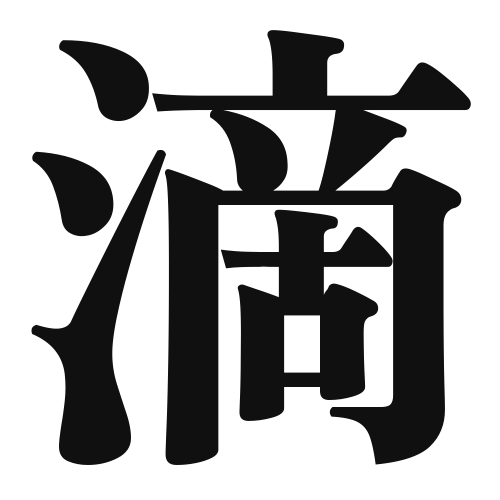1. Overview of Meaning
The kanji “滴” (pronounced “taku” or “shaku”) means “drop” or “drip.” It is often used to refer to small amounts of liquid that fall or are released in drops.
2. Formation and Radical
Formation of the Kanji: The kanji “滴” is a phonetic-ideographic character (形声文字). It combines the meaning of water with a phonetic component that suggests its pronunciation.
Radical: The radical for “滴” is “水” (water), which is commonly found in kanji related to liquids.
3. Examples of Usage
Common Words and Phrases:
- 滴水 (てきすい, tekisui) – “dripping water”
- 雨滴 (うてき, uteki) – “raindrop”
Example Sentences in Daily Conversation:
- 「雨が降っているので、窓に滴がついています。」(It is raining, so there are drops on the window.)
- 「水道の蛇口から滴が落ちています。」(A drop is falling from the faucet.)
4. Synonyms and Antonyms
Similar Kanji:
- 水 (みず, mizu) – “water” (refers to the substance itself, while 滴 refers to drops of it).
- 雫 (しずく, shizuku) – “drop” (often used poetically or in literature).
Antonyms:
- 乾 (かん, kan) – “dry” (opposite of wetness associated with drops).
5. Cultural and Historical Background
Relation to Japanese Culture: The concept of “滴” is often associated with nature and the beauty of water in Japanese culture, reflecting the importance of water in daily life and art.
Proverbs and Idioms:
- 「滴水穿石」(てきすいせんせき, tekisuisenseki) – “Dripping water penetrates the stone,” meaning persistent effort can overcome obstacles.
